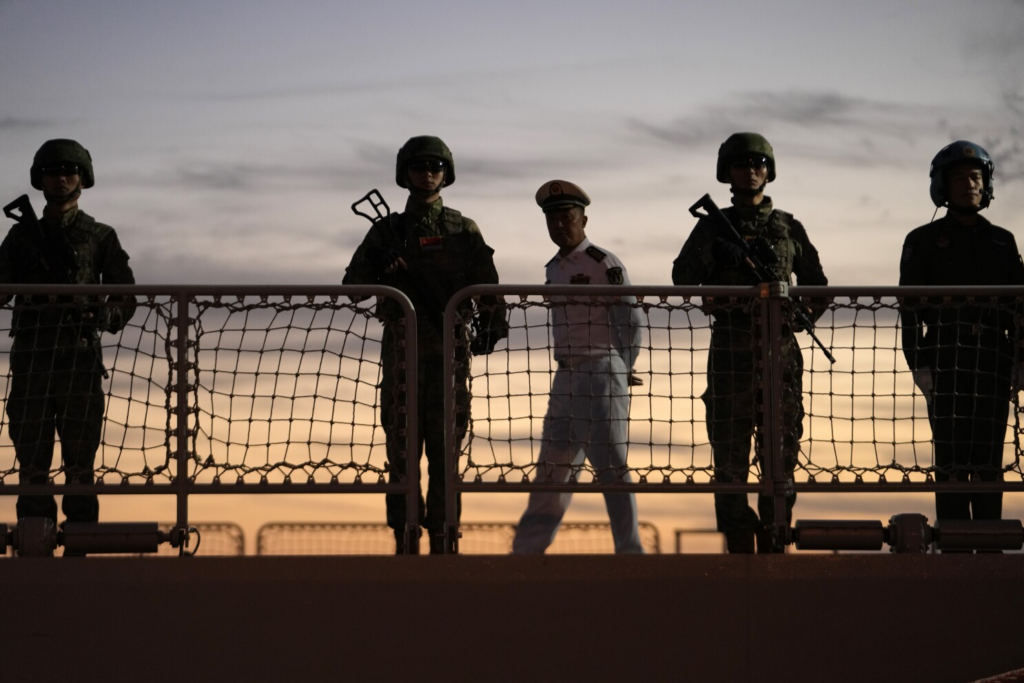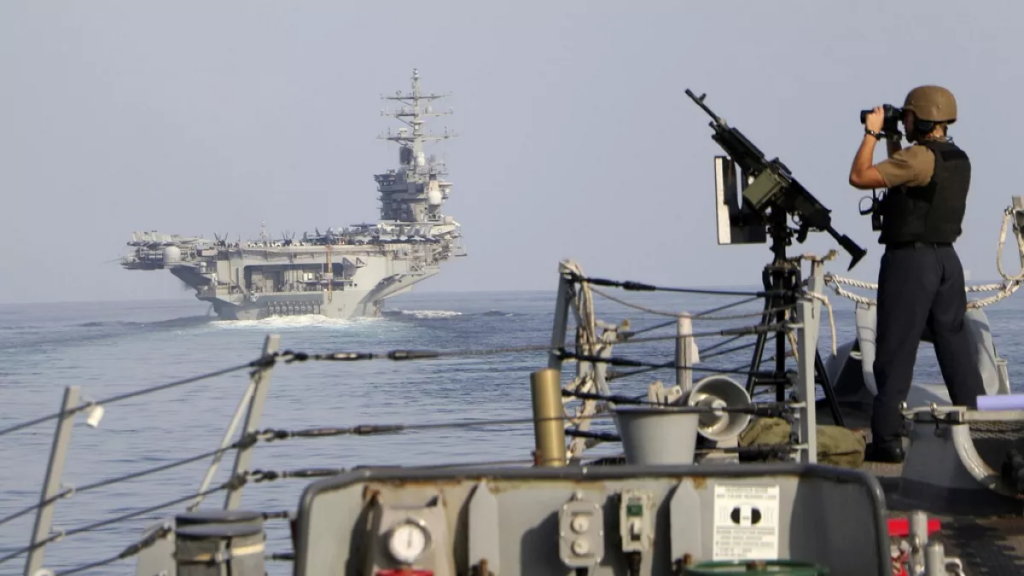The war in Yemen has been escalating in recent weeks in ways that have captured the attention of the international community, with military operations involving several world powers and changing allegiances. The United States has increased its military intervention in situation, which includes deploying F/A-18 Super Hornets on targeted bombings of strategic Houthi sites in Yemen. The Houthis further carried out an attack on the USS Harry S. Truman, an American Navy carrier deployed in the Arabian Sea, which has escalated dramatically the level of an already uneven physics.
The heart of this emerging crisis is China’s appeal for dialogue and peaceful resolution. The world is observing stakes are not merely about Yemen’s future in addition to the larger geopolitical and security stakes for the Middle East and the international order. In this blog, we will explore the recent army evolves, the actions of the key players like China and the U.S., and the wider implications of these events.

Background: The Yemen War and the Houthis
Yemen’s civil war, which started in 2014, has led to one of the globe’s most severe humanitarian crises. The war is between the globally President Abd-Rabbu Mansour Hadi and the Houthi rebel group, said to be supported by Iran. The war ravaged the country, leaving tens of thousands dead, displacing millions, and many in dire need of aid to the needy.
The situation has been made even more complicated by the entry of regional powers. A coalition led by Saudi Arabia, which includes the UAE, intervened in 2015 to aid the Yemeni government against the Houthis. The intervention has made Yemen a proxy battlefield, with the Saudis and their allies pitted against Houthi forces, who have Iranian support. The war has resulted in a tangled lattice of alliances, with each side having external backing that continues to feed the conflict.
The United States’ Role in Yemen
The United States has been involved heavily in the conflict in Yemen, mainly through support of the Saudi-led coalition’s actions against the Houthis. This support has taken the form of the availability of intelligence, weapons, and air refueling for the coalition forces. The U.S. has been largely involved in the support of Saudi efforts but its own military equipment targeted more and more by Houthi attacks.
In the most recent turn of events, the U.S. Navy’s USS Harry S. Truman was attacked when Houthi forces targeted the aircraft carrier with a missile and drone attack. The attack, though not resulting, is a major escalation in Houthi strategy. The Houthis, taking credit for the attack, were defiant in that the U.S. military presence in fuels the war. The Houthis’ new capability to attack very well-protected targets, including an American Navy their rising sophistication in warfare.

F/A-18 Super Hornets: A Show of Force
As a response to the increased threat from the Houthis and their allies, the United States has intensified its military action. F/A-18 Super Hornet fighter aircraft have been sent to the location to target major Houthi installations in Yemen. The airstrikes have been directed against Houthi military facilities, like missile sites and drones, in the hope of disabling attack coalition forces and their interests in the location.
The F/A-18 Super Hornet, arguably the most sophisticated multi-role plane in the U.S. Navy fleet, is most recognizable for its ability to perform equally in air-to-air combat and precision attacks on surface targets. The deployment of these aircraft shows that the U.S. is serious Houthi threat and protecting its interests in with the recent bombing of the USS Harry S. Truman.
China’s Role and Appeal for Dialogue
In the midst of increasing tensions and militarization of the conflict, China has been a strong voice for dialogue and diplomatic resolution of the crisis. The Chinese government has continuously appealed for a peaceful resolution of the Yemen war, calling on all sides to pursue negotiations differences through dialogue rather than military engagement.
China’s stance is not only based on humanitarian interests the larger regional stability implications. As a world economic power in the Middle East, China has an interest in ensuring peace in China’s Belt and Road Initiative (BRI), which encompasses infrastructure development in the Middle East and Africa, relies on regional stability for its long-term success.
In addition, China has always promoted a more balanced policy towards the Middle East, focusing on non-interference in the internal affairs of sovereign states. This is in sharp contrast to the interventionist policies of the U.S. and Saudi Arabia, and thus China’s calls for dialogue are of its overall foreign policy in By presenting advocate of peaceful diplomacy, China build its power in the Middle East and challenge the U.S.-dominated order.

Implications for Regional Stability
The USS Harry S. Truman attack and after U.S. airstrikes on Houthi positions in Yemen mark a new stage in the conflict. The situation is really erratic, and there are a number of regional stability:
U.S.-Iran tensions: The increasing capabilities of the especially his drone and missile capabilities, directly address U.S. interests in the role. Yemen has already turned into a proxy war between Iran and Saudi Arabia, and current events could further exacerbate U.S.-Iran tensions. The U.S. has accused Iran of providing military support to the Houthis, more intensification could lead to more thorough conflicts in the role.
Chinese Diplomacy: China’s push for dialogue puts it in the position of being a possible arbiter of the conflict. Although its regional power is growth, especially by economic pressure, its diplomatic initiatives could provide a balancing force against U.S. military intervention. If China is able to use its economic ties with both Iran and Saudi Arabia, it could potentially negotiate a peace agreement that de-escalates tensions in Yemen.
Humanitarian Crisis: The conflict in Yemen has resulted in one of the world’s most severe humanitarian crises. With limited food, medicine, and necessary services, citizens continue to be the direct victims of the conflict. Any escalation of military action risks worsening the situation. A priority must be given to dialogue and peace-building to cope with the root causes of the crisis and ensuring that the needs of the people of Yemen take precedence.
Global Security: The conflict in Yemen is microcosm of the larger security Middle East. The increased engagement of global powers U.S. and China, and regional players like Iran and Saudi Arabia, reflects the importance of international stability. An extended conflict has the potential to destabilize the entire Arabian Peninsula, with repercussions for international oil markets, security alignments, and refugee flows.

